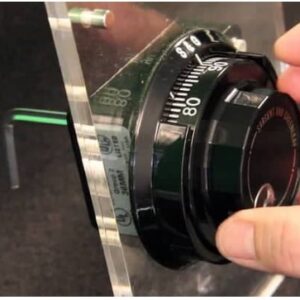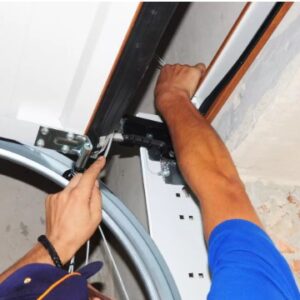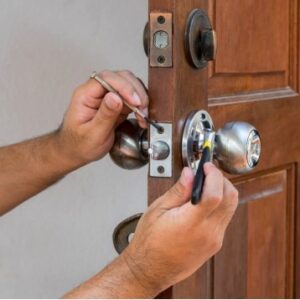Traveling for work often means thinking about logistics that go beyond flights and hotels. One of the most practical steps that can make or break your trip is how you handle foreign currency. Whether you are covering expenses for meals, taxis, or client meetings, managing your money efficiently can save time and reduce stress. Overlooking this part of travel planning often leads to unnecessary fees, poor exchange rates, or running short on cash when you need it most.
When preparing for a business trip, it helps to understand not just where to exchange money but how to do it in a way that supports your goals. We can plan our itinerary perfectly, but if our finances are disorganized, it affects how smoothly everything else runs.
Understanding Exchange Rate Basics
Before exchanging any amount of money, it’s worth knowing what determines the rate you receive. Exchange rates fluctuate daily based on market conditions and international demand for currencies. Banks, exchange counters, and credit card providers all apply their own margins, which can make a noticeable difference in the amount of foreign cash you end up with.
A practical first step is to monitor the rate for a few days before your trip. Even a small difference can matter when converting large sums for corporate expenses. Online currency converters are useful, but they rarely show the exact rate you will get in person. Always check the live rate at your local service provider and confirm any additional transaction fees before agreeing to an exchange.
You can also visit the currency exchange in Calgary page to review live rates and better understand the options available locally. It’s a small habit that often saves both money and confusion later.
Timing the Exchange
Timing plays a bigger role than most travelers realize. Many people wait until the last minute and end up exchanging at the airport, where rates are often higher due to convenience charges. Planning a few days ahead allows us to compare rates calmly and lock in a better deal.
If your company reimburses travel costs, it’s also easier to provide receipts and rate confirmations when the exchange is done locally before departure. For longer business trips, consider splitting the exchange into two transactions. Converting part of your funds early can protect you from sudden rate changes, while leaving a portion for later gives flexibility if you need more cash once abroad.
Currency fluctuations are normal, but being proactive ensures you’re not forced to accept an unfavorable rate under pressure.
Using a Mix of Payment Methods
Carrying only cash is risky, but relying entirely on cards can be equally inconvenient in certain countries. A balanced approach works best. We should have enough local cash for small expenses like taxis, tips, and street vendors, while using credit or debit cards for hotels and larger purchases.
When choosing which cards to bring, check for international transaction fees and alert your bank about your travel dates. Business travelers sometimes experience card blocks triggered by security systems when a charge appears from a new country. Preventing that takes a quick call before you leave.
Another option for efficiency is using multi-currency travel cards, which allow you to pre-load several currencies at fixed exchange rates. They are ideal for frequent travelers who visit multiple countries in one trip.
Choosing Where to Exchange
Selecting the right exchange location can make a clear difference in convenience and savings. Banks offer reliability but may charge higher service fees or require advance notice. Independent exchange services often provide more competitive rates with faster processing.
The key is to choose a provider that prioritizes transparency. You should be able to see the rate clearly displayed, understand what fees apply, and walk away with an official receipt. Hidden fees and unclear terms are red flags that can turn a simple transaction into a costly mistake.
Local specialists in Calgary often offer the best value for those preparing for business travel, combining personal service with favorable rates. When possible, build a relationship with a trusted exchange provider. Repeat customers sometimes get better rates or faster service, which can be valuable if you travel often.
Minimizing Transaction Costs
Even small fees can add up when exchanging currency for multiple trips throughout the year. We can reduce these costs through a few practical habits. First, exchange larger amounts less frequently instead of making multiple small conversions. Second, avoid using credit card cash advances abroad, as they combine poor exchange rates with high interest.
If your company handles multiple international operations, setting up a standing arrangement with a reliable local provider can secure consistently good rates. This approach also simplifies paperwork and ensures accountability for every transaction.
Lastly, always ask for smaller denominations. They make it easier to manage daily expenses and reduce the need for additional exchanges once abroad.
Managing Currency After the Trip
After returning home, it’s common to have leftover cash in small amounts. While it may seem insignificant, converting it back efficiently can help you recover more value. Some exchange providers allow buyback at preferred rates if you originally exchanged through them. Keeping your receipts and original documents can make this process faster.
If you travel frequently, consider storing leftover foreign cash safely for future trips instead of converting it back and forth. It eliminates additional conversion fees and saves time when planning your next journey.
Digital tracking also helps. Recording every transaction through a mobile app or even a simple spreadsheet ensures your expense reports are accurate and your reimbursement process runs smoothly.
Preparing for Multi-Country Business Travel
When traveling across several countries, managing currencies becomes more complex. It’s not just about having enough cash but organizing it properly. Each destination might have different card acceptance standards, ATM availability, and limits on foreign exchange.
For example, some European countries rely heavily on digital payments, while parts of Asia or Africa still operate mainly in cash. Researching this before you travel prevents awkward moments at the counter.
It can also help to prioritize the currencies you’ll use most often. Exchange only what you need for short stopovers to avoid holding large sums of cash you won’t use again.
Finally, if you expect to handle cross-border transactions regularly, build a relationship with a provider who can support business clients. It allows smoother planning, direct invoicing, and expert advice for larger conversions.
Keeping Safety in Mind
Security is often overlooked when dealing with currency abroad. Keeping all your money in one place or carrying excessive cash increases risk. A simple system of dividing funds between a money belt, wallet, and hotel safe can help.
When withdrawing cash from ATMs, choose machines in well-lit or secured locations such as banks or shopping centers. Avoid exchanging money through street vendors or unlicensed counters, even if they appear to offer better rates.
For business travelers managing company funds, safety also includes documentation. Keeping digital copies of receipts and exchange slips protects against loss and simplifies expense reporting later.
Planning for Currency Needs Ahead of Time
A common mistake travelers make is estimating the wrong amount of cash. Too little causes inconvenience, while too much means dealing with unnecessary conversion later. Review your travel schedule and list expected expenses for meals, transport, and incidental costs. This helps calculate how much cash is truly necessary.
If your company uses per diem allowances, plan the exchange to match the total amount you expect to spend per destination. Having cash ready on arrival saves you from paying higher airport rates or searching for an exchange office during a busy business day.
Early planning also helps in case you need specific currencies that are less common or need to be pre-ordered.
Leveraging Local Expertise
When it comes to business travel, time matters as much as money. Working with a local service allows you to make quick adjustments, get updates on currency availability, and ensure smooth transactions before departure.
If you need assistance or want to confirm exchange details before your next business trip, you can contact us to plan your transaction efficiently. Having local support simplifies the process, especially when traveling under tight schedules.
FAQ
- How far in advance should I exchange currency before a business trip?
It’s best to start checking rates a week in advance and complete the exchange a few days before departure. This allows enough time to compare rates and secure the most favorable one. - Is it better to exchange money at the destination or before leaving?
Exchanging before you travel usually provides better value. Local services in Calgary tend to offer more transparent rates than airport counters or overseas kiosks. - Can I use credit cards for all business expenses abroad?
Credit cards work well for hotels and restaurants, but small vendors, taxis, and tips often require cash. Having both options ensures flexibility. - What should I do with leftover foreign cash after returning home?
You can keep it for future trips or convert it back at your local exchange office. Keeping receipts can help you access better buyback rates. - How do I avoid high fees when exchanging currency?
Plan ahead, compare providers, and exchange larger amounts less often. Avoid airport exchanges and credit card cash advances, as they usually involve higher charges.





